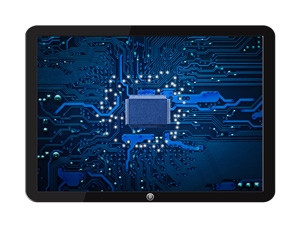
Advanced Micro Devices (AMD) announced at Computex in Taiwan that it seeks to develop processors for Android and Chrome operating systems on PCs and tablets.
AMD says it tablet-targeted accelerated processing unit (APU), codenamed "Temash", is the world's first quad-core x86 system-on-a-chip designed for tablet and hybrid PCs.
The APUs have been designed specifically for small form-factor notebooks, tablets, and hybrids with screens 13-inches and smaller.
AMD announced the Temash product line last month and also won the 2013 Best Choice of Computex Taipei award for its innovation.
Clever move
The company had made it clear in the past that it had no intention of developing processors for the low-cost tablet market and placed all its trust in Windows 8, which it believed would catch on.
Extending its chips to Android could open up the tablet market for AMD as the latest statistics by Net Application reveal Windows 8 has the least amount of market share among all three of its predecessors in the Microsoft stable, with just 4.2%.
According PCWorld, senior vice-president and general manager of AMD Global Business Units, Lisa Su, said although it still remains committed to Windows 8, it will make its processors available to Android and Chrome tablets.
However, Su did not confirm whether the AMD-powered Android and Chrome tablets would go on sale but only said AMD is working on chips for the two operating systems.
Challenge
The slowing of PC sales and increasing smartphone and tablet shipments knocked AMD down to fourth place in microprocessor sales in 2012, according to a new ranking of microprocessor unit suppliers by IC Insights.
Qualcomm has moved into second place and Samsung into third, taking 9.4% and 8.2% of the microprocessor market share, respectively. AMD lost 21% of its share compared to 2011, to drop to fourth place. According to the report, AMD had been ranked just behind Intel since the 1990s.
Processing giant Intel still leads the market with a 65.4% share, but lost 1% of its share to the infiltration of mobile app processors.
Intel also unveiled new details about its tablet-focused Atom processor codenamed Bay Trail-T at Computex this week. The chip manufacturer claims its new Intel technology for tablets and mobile devices will enable eight or more hours of battery life and weeks of standby. The processor will support both Android and the upgraded version of Windows 8.
Speaking at Computex, GM of Intel's Mobile and Communications Group, Hermann Eul, again emphasised the company's move towards mobile computing. "The mobile category is undergoing a tremendous amount of innovation and constant change. As we look at growing it, we continue to invest in and accelerate our efforts across all aspects of mobility with a focus on smartphones, tablets and wireless communications."
Share